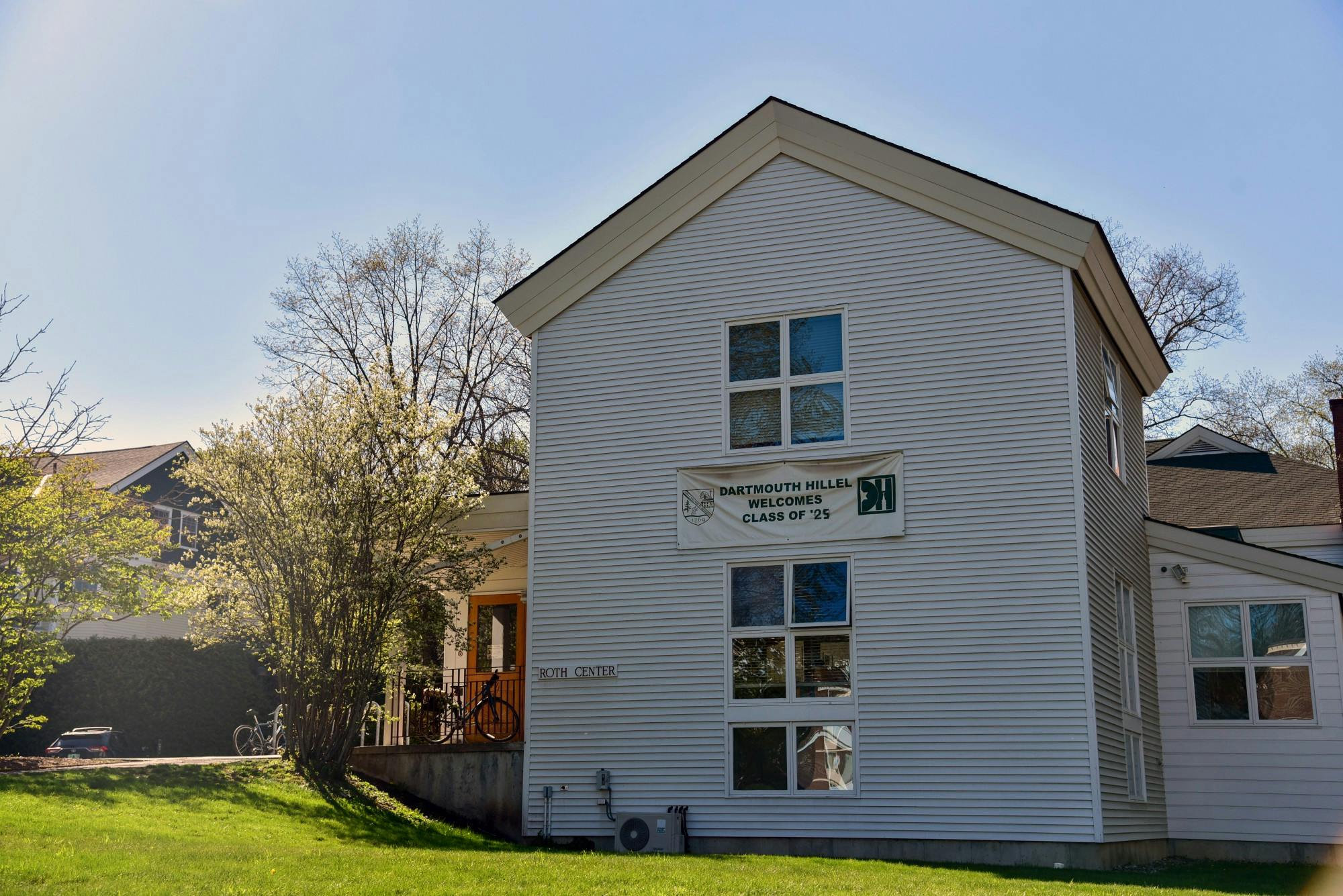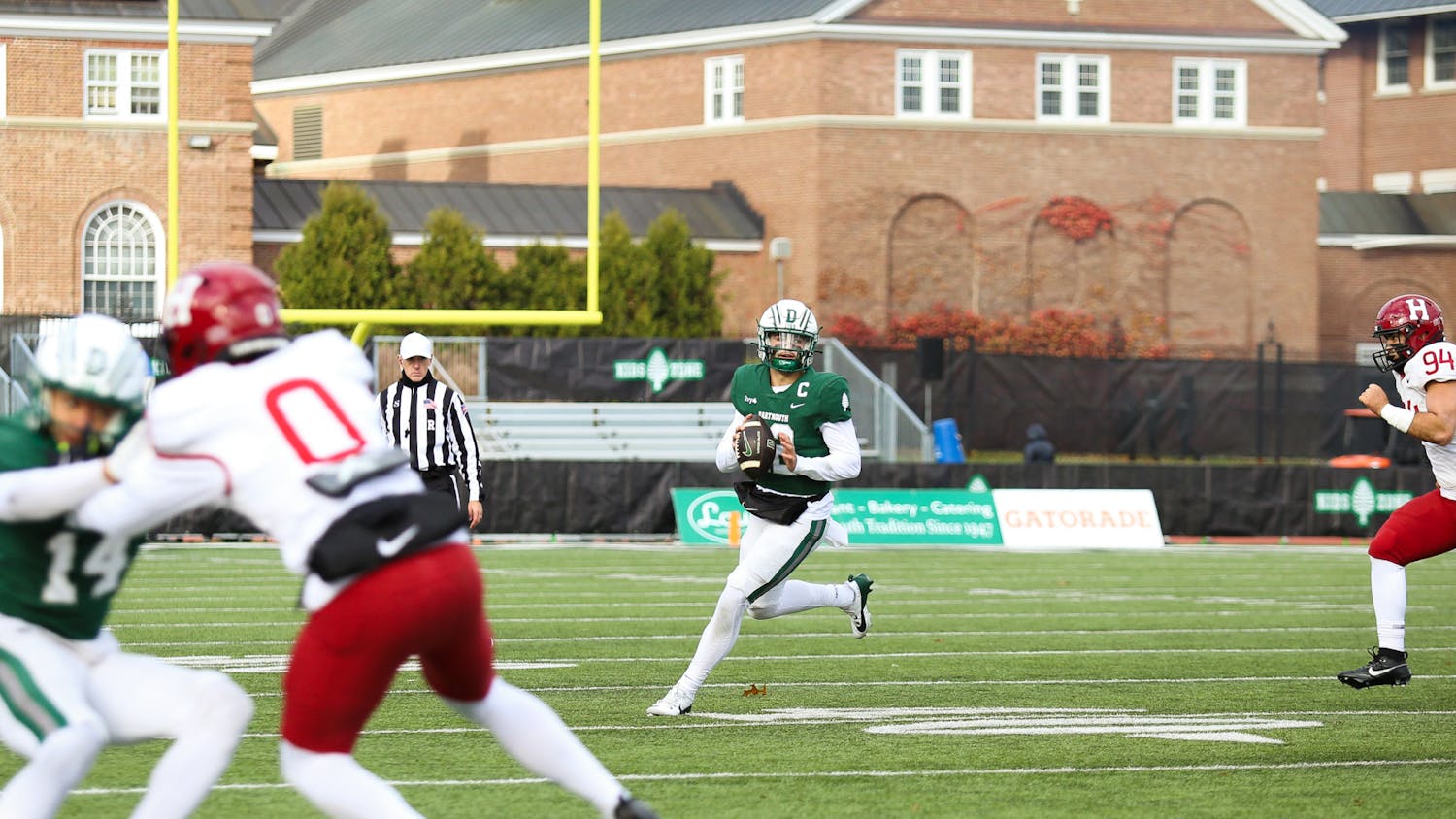From Sunday to Tuesday, the Jewish community at Dartmouth celebrated Rosh Hashanah with a series of services, meals and traditions, starting off the celebration of the High Holy Days that mark the beginning of the Jewish New Year and will end with Yom Kippur on Oct. 5. Starting on the first day of Tishrei — the first month of the Hebrew calendar — Rosh Hashanah is a time of reflection on the past year and prayer for the upcoming year.
According to Elan Kluger ’26, the Chabad dinner included apples and honey paired with the Shehecheyanu blessing — an expression of gratitude for something new. Attendants also ate circle-shaped challah, representing “the new year and changes in time,” Kluger said.
Dartmouth Jewish community organizations Hillel and the Chabad Center held evening services including student-led prayer and songs followed by dinners on Sunday, the first evening of the holiday, according to Hillel and Chabad’s websites. Students also gathered for religious services and ceremonies throughout the day Monday and Tuesday, Cara Marantz ’25, who is on the executive board of Hillel, said.
“I’m thinking about the differences between how I celebrate at home versus how I celebrate here,” Marantz said. “At home I never want to go [to services] and here I do. I think of it as an opportunity to feel connected and it’s something that you grow up knowing is super important, and when you have the choice I realized that I did want to participate because they are the most important Jewish holidays.”
In addition to religious services, Marantz said that students took part in traditions including a Tashlich ceremony at the river on Monday. Tashlich, which literally means “to cast off,” is a ceremony in which practitioners toss their proverbial sins into a body of water, according to Chabad Rabbi Moshe Grey. On Monday, about 30 students gathered on the Green for the annual blowing of the Shofar, an instrument typically made of a ram’s horn. Hillel also hosted a dessert and a candle lighting ceremony Monday evening, Grey said.
Kluger attended the Shofar blowing on the Green and said he found meaning in its location.
“I liked the in-the-middle-of-everything Shofar blow just because I always hear it as a call to reflect, and having it right in the middle of campus was significant to me,” he said.
Marantz added that it is tradition for some to fast during Yom Kippur, as it is a holiday in which practitioners atone for their sins of the previous year by abstaining from food from sunset to sunset.
“We’ve been doing this for many many generations and so it’s the mere fact of taking that pause and having two days for Rosh Hashanah, and then next week is going to be Yom Kippur, where we can really just focus on being present and mindful,” Grey said. “We’re not eating, we’re not drinking. We’re just sitting in synagogue; we’re being together.”
For Grey, the High Holy Days spark introspection.
“I've been reflecting a lot about not just my own personal responsibilities to myself and my relationship with my religion, but really what is my obligation towards others?” Grey said.
Kluger said that fall at Dartmouth represents a period of transition punctuated with traditions that he has celebrated throughout his life.
“The new secular year starts at a random time it seems like, whereas this starts at the beginning of fall. So it really was the beginning of a new year, new school year, new life,” he said. “The other part is that I’ve celebrated my whole life, and so being at college I’m still going to celebrate it. I love all the traditions associated with it.”
Aidan Katz ’26 said attending the High Holy Days events and regular Chabad Center dinners has helped him develop community at Dartmouth.
“It's a very nice community, very welcoming,” Katz said. “Everyone's welcome. A lot of really great conversationalists, people who like to talk and get to know you and just talk about random things — Judaism and not Judaism.”
The High Holy Days continue next week with Yom Kippur, beginning the night of Oct. 4. At both Hillel and the Chabad Center, students can attend pre-fast meals followed by Kol Nidre prayer service on Tuesday evening. Then, throughout Oct. 5, Hillel and Chabad will host services followed by a meal Wednesday evening to break fast, according to Hillel and Chabad’s websites.
Grey said the programming for the High Holy Days has also aimed to provide a space to support students grieving the deaths of Joshua Watson ’22 and Sam Gawel ’23.
“A lot of the students that come to Chabad knew Sam, were friends with Sam,” Grey said. “So really being sort of hyper focused and attentive to that and their needs there. It's not just now but it's going to be sort of listening in the long term to what their needs are going to be in the next weeks and months and years in response to that. It’s ongoing.”
Cara Marantz ’25 is a member of The Dartmouth’s Engagement team.
Cassandra Montemayor Thomas ’22 contributed to reporting.




